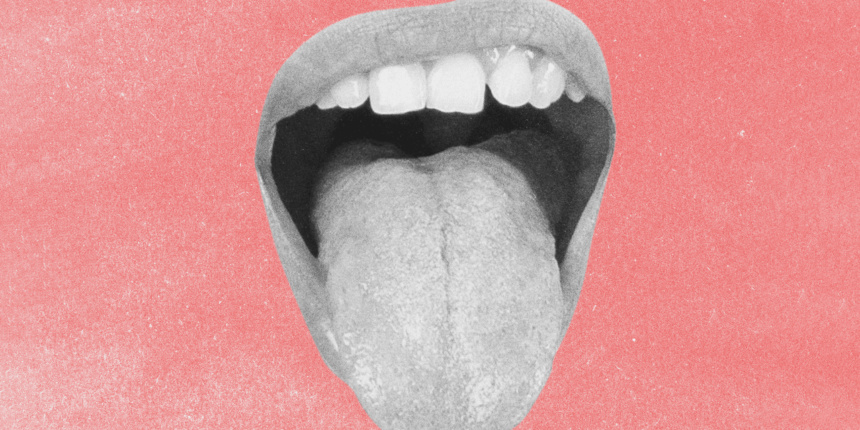Besides busting halitosis, one of the benefits of tongue scraping according to Ayurveda, as Pandya notes above, is enhanced taste perception. Research on the topic is scant, but one small 2004 study suggests that tongue scraping could improve taste sensation, making your favorite sweet or savory foods even more delectable. Dr. Wagner adds that the practice “may enhance taste sensitivity by clearing the taste buds, improving the enjoyment of food flavors.”
Tips to get the most out of your tongue-scraping practice
To correctly use a tongue scraper, “stand in front of the mirror, hold the two ends of the tongue scraper with both hands, and gently pull in one stroke towards the top of the tongue,” Marc Lowenberg, DDS a board-certified cosmetic dentist, tells SELF. It’s most beneficial to start at the back of your mouth, and “gently drag the scraper forward,” adds Dr. Wagner.
Then, Dr. Wagner instructs, repeat five to 10 times until your tongue feels clean and you can no longer see any film on it. Once you’re done, rinse your mouth with warm water. Finally, you’ll want to make sure to clean the tool. “Rinse the scraper thoroughly with water and store it in a clean, dry place. You can rinse the tongue scraper between each scrape if you want, depending on how much debris is being removed,” he adds.
According to Ayurvedic medicine, morning is the best time to practice tongue scraping, as bacteria tends to accumulate overnight, says Pandya. But this might have one drawback, especially if you’re new to the practice: Wagner notes that “the gag reflex is more sensitive in the morning for most people, so don’t get discouraged.” If this happens, he advises going a bit more gently (and not starting as far back) until you get used to it.
How to shop for a tongue scraper
There are a lot of tongue scrapers out there to choose from. The best tongue scraper for you is one that’s easy to use, doesn’t cause pain, is easy to clean, and fits within your budget. However, certain materials tend to be a bit better suited for the task.
Both Drs. Lowenberg and Wagner suggest avoiding plastic tongue scrapers, which may not be sturdy enough to adequately remove debris and are harder to keep clean. “Copper is a great material for tongue scraping,” Dr. Lowenberg notes, noting that there’s some research that suggests copper has antimicrobial properties that may help reduce levels of bacteria in the mouth. (Though it’s worth noting that studies thus far on the topic have been done in a lab, and not directly in human mouths.) Dr. Wagner also likes copper and stainless steel tongue scrapers, which can withstand use and are “easier to clean, reducing bacteria buildup.”
Are there any risks of tongue scraping?
Tongue scraping is easy to master, and a quick step to fit into your oral health routine. In general, it’s pretty safe to do. Still, there are things to consider with this practice because the tongue is a sensitive organ. “Excessive pressure or scraping with a sharp tool could irritate or injure the tongue’s delicate tissues,” notes Dr. Wagner. If you feel any pain while scraping, that’s a sign you’re being too aggressive or the device you’re using isn’t right for the task.
Both dentists add that although tongue scraping can be a potentially beneficial addition to your oral hygiene routine, it shouldn’t replace any of the other steps—like brushing and flossing—that are vital to maintaining a healthy mouth. If you like how it feels, though? There’s no harm in using it as a low-stakes bonus step to further combat bad breath and keep your mouth feeling as fresh and clean as possible.
Read the full article here



